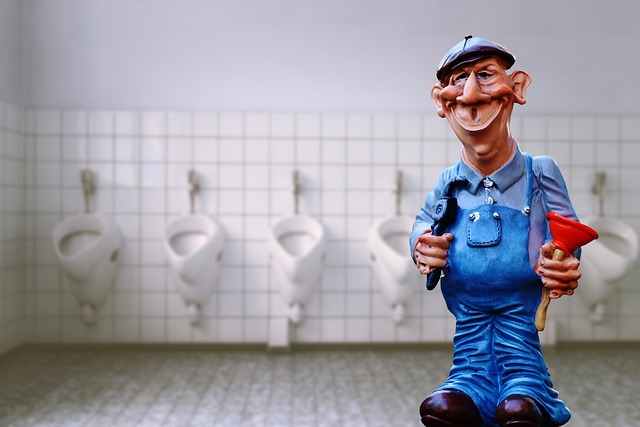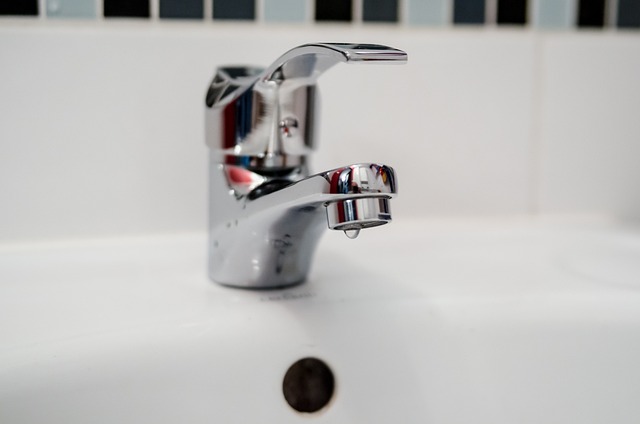Understanding the scope of tasks is crucial when deciding between DIY plumbing fixes or hiring professionals. While homeowners can tackle minor issues like clogs and leaky faucets with basic tools, complex problems such as pipe bursts, repiping, or water damage require professional plumbers' expertise. Recognizing these limits ensures efficient problem-solving, prevents further damage, and promotes the optimal condition of your plumbing system, emphasizing the importance of choosing DIY projects carefully or seeking expert assistance when needed.
Navigating the world of DIY versus professional plumbing can be daunting. This article guides you through the intricacies, empowering you to assess your plumbing issues and make informed decisions. We explore simple tasks suitable for do-it-yourselfers and complex situations demanding expert hands.
From the classic plunger, a warrior against clogs, to the sturdy pipe wrench, essential for tight connections, we demystify these tools. Recognize red flags like severe leaks or unusual noises that signal professional attention.
By understanding DIY vs. professional plumbing, you’ll foster efficient maintenance and know when to call the experts.
- Assessing Your Plumbing Issues: DIY-able vs. Professional
- – Identifying simple plumbing tasks suitable for DIY
- – Recognizing complex issues best handled by professionals
Assessing Your Plumbing Issues: DIY-able vs. Professional

When it comes to plumbing issues, understanding whether a problem is suitable for a DIY approach or requires the expertise of a professional plumber is essential. Many minor clogs, leaky faucets, or simple fixture installations can often be tackled by homeowners with some basic tools and knowledge. These tasks typically involve standard issues that fall into the ‘DIY-able’ category, allowing folks to save time and money by doing it themselves. Online tutorials and how-to guides are readily available for such projects, empowering individuals to gain confidence in their plumbing skills.
However, not all plumbing problems are created equal. Complex issues like severe clogs, pipe bursts, or intricate repiping jobs often demand the skills and tools of a seasoned plumber. Professional plumbers possess the expertise and specialized equipment necessary to handle these situations effectively. DIY enthusiasts might risk causing further damage or spending excessive time on projects best left to experts. Recognizing the limits of your abilities is crucial to ensure safe and efficient plumbing resolution, ultimately deciding when to roll up your sleeves and tackle it yourself versus when to call in a professional plumber.
– Identifying simple plumbing tasks suitable for DIY

Plunger or pipe wrench? Knowing which tool to reach for can save you time, money, and potentially a call to a professional plumber. Simple plumbing tasks like unclogging a drain or fixing a leaky faucet often fall into the DIY category. A plunger is usually sufficient for clearing minor clogs caused by hair, soap scum, or food particles. Its mechanical action creates suction, which can dislodge blockages without causing any damage to pipes. For leaky faucets, a DIY approach may involve replacing worn-out O-rings or washers, tasks that require minimal tools and can be accomplished with a bit of patience.
On the other hand, complex plumbing issues like repiping, sewer line repairs, or installing new fixtures often demand professional expertise. These jobs typically involve intricate fittings, high water pressure, or access to underground systems, requiring specialized knowledge and tools. DIY enthusiasts might cause further damage or create safety hazards if they attempt these tasks without proper training. In such cases, it’s best to call a licensed plumber who can diagnose the problem accurately and provide efficient solutions, ensuring your plumbing system remains in top condition.
– Recognizing complex issues best handled by professionals

When it comes to plumbing issues, there’s a fine line between do-it-yourself (DIY) projects and when it’s time to call in the professionals. While many minor problems can be easily fixed with some basic tools and knowledge, complex or severe cases often require the expertise of skilled plumbers. Recognizing these complex issues is crucial for your safety and the effectiveness of the solution.
DIY enthusiasts might be inclined to tackle any problem, but certain plumbing challenges are best left alone. Clogged drains, low water pressure, and simple leaks usually fall into the DIY category. However, if you’re dealing with broken pipes, severe clogs that require special tools, or suspicious water damage, it’s time to consider calling a professional plumber. These complex issues often involve intricate repairs, specialized knowledge, and potential safety hazards that demand the expertise of someone trained and equipped to handle them properly.
When it comes to plumbing repairs, understanding the difference between DIY and professional services is key. Simple, straightforward issues like unclogging a drain or replacing a toilet handle can often be tackled by homeowners with some basic tools. However, complex problems such as pipe leaks, faulty water heaters, or extensive repiping require the expertise of licensed plumbers. Knowing when to DIY and when to call a professional ensures efficient solutions without causing further damage, ultimately saving time and money in the long run.
